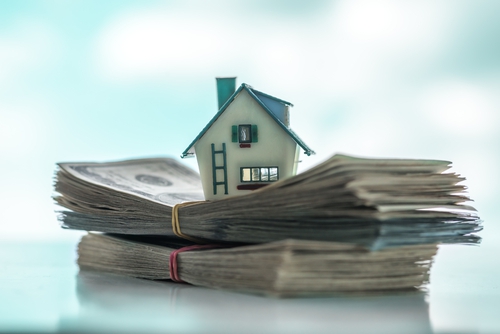

Years ago, a 20% down payment was a requirement for obtaining a mortgage loan. Putting that much money down made it less likely that borrowers would simply default on their home loans and gave lenders a measure of security and collateral in the case of foreclosure.
However, in more recent years, lenders have gotten much more creative in financing to help more Americans become homeowners. There are now mortgage loans that require as little as 3% down up front. In order to compensate for that added risk of loss, lenders require and borrowers with a down payment of less than 20% to pay for private mortgage insurance (PMI).
PMI is an insurance policy that the borrower takes out with a separate company that guarantees the mortgage company will recoup their losses if the borrower defaults. The borrower pays a premium each month and must keep the policy until his or her equity reaches 20% of the home value.
If you are in the market for a home loan but are not sure you can scrape together a large enough down payment to avoid PMI, here are 4 reasons you should think about saving a little longer:
- Fewer Tax Breaks – PMI used to be completely tax deductible, but as of 2018 that tax haven has been completely cut out of the law. You will have to factor in how that will affect your personal tax situation.
- Higher Mortgage Payment – PMI usually gets rolled into your total monthly mortgage payment. PMI premiums range between 0.5% and 1% of the home loan amount annually. That can add up to a couple extra hundred dollars a month that you’ll have to pay for an indeterminate amount of time.
- You Are Responsible For Early Cancellation – the standard mortgage loan will automatically cancel your PMI policy after your equity reaches 22% of the current home value. Most will allow you to cancel at 20% if you do the work to prove you have that much equity. This will require an appraisal as well as formal letters to the lender, all of which can take months and extra money.
- Lost Investment Opportunities – If it ends up taking years for you to earn 20% equity in your property that will mean years of having given up money to an insurance company when you could have been investing that cash for your own benefit.
Of course, there may be some situations when paying PMI makes sense. Most often this is when you are buying in an area with strong home price appreciation or if your down payment is very close to 20% and you know you will be able to put down the rest soon. And first-time homebuyers often find PMI worth the cost in order to break into the housing market.
However, in most other situations, simply saving up a full 20% down payment is the safest way to take on a mortgage home loan. It also ensures that you let your money work for you and not the other way around.
